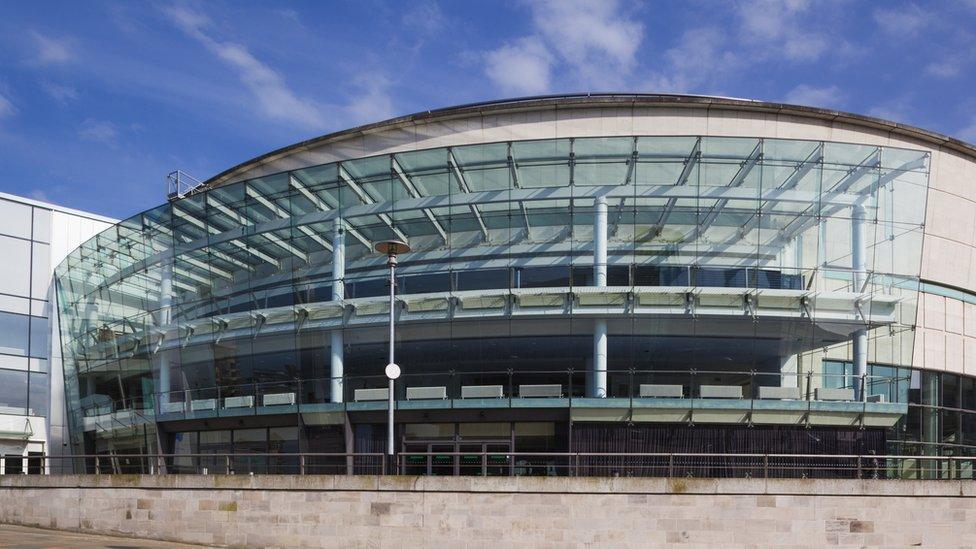Coronavirus: Waterfront Hall and Ulster Hall wage support ends
- Published

Belfast's Waterfront Hall plays host to some of Northern Ireland's biggest music and arts events
One hundred and forty casual workers at the Waterfront Hall and Ulster Hall in Belfast will no longer receive wage support.
The staff were being paid under the government's coronavirus job retention scheme which ends on 31 October.
Belfast Waterfront and Ulster Hall Ltd said they would remain on the books.
The 140 people make up a pool of staff that can be called upon to work at entertainment and business events throughout the year.
The amount of work tends to be seasonal, but Covid-19 restrictions have effectively closed the events sector.
“óĻó“«Ć½ News NI understands casual workers will be asked to work again when events resume.
Safe re-start
A spokesperson told “óĻó“«Ć½ News NI that in line with the end of the furlough scheme and "to protect the long-term viability of the venues" payments to casual team members have now ceased.
"āÆWith casual contracts, there is no obligation for an employer to offer paid work to casual staff, and likewise, no obligation for the casual worker to accept work," they continued.
"Our permanent team, some of whom are currently on furlough, will now transfer to the Job Support Scheme eligible to businesses like us, which are forced to close due to Coronavirus restrictions.āÆ
"Whilst we await further government guidance āÆaround āÆthe re-opening of live entertainment and conferences,āÆour venues will remain closedāÆto the public.
"We remain committed to working constructively with the UK Government, the Northern Ireland Executive and our peers across the events, entertainment and conferencing sector to explore ways for our sector to re-start safely."
Green Party councillor Anthony Flynn said he had raised the matter with other councillors and claimed there had been a "lack of engagement" with council officials prior to the decision.
"It is ludicrous that these workers have been employed on such insecure contracts in the first place and that the rules of the new job support scheme make it much more difficult for jobs to be protected." he said.
"The original job retention scheme provided a lifeline to workers and businesses affected by the pandemic, now it is being stripped and restricted, leaving many in precarious situations at one of the toughest times of the year for workers and families."
- Published26 October 2020
- Published10 September 2020